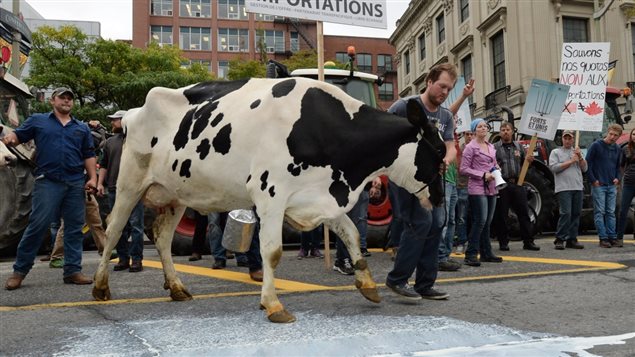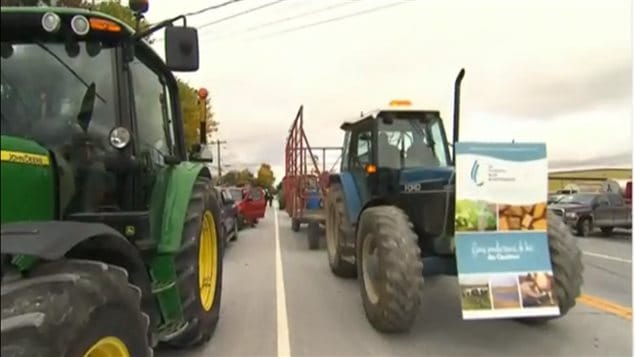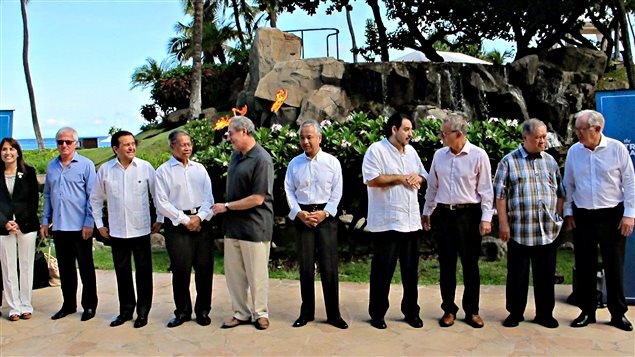The Canadian supply management programmes in dairy, poultry and eggs, have meant a fairly stable income and market for farmers in Canada.
Many have said the new TPP international trade deal is threatening that.
Anthony Winson (PhD) is a professor in the College of Social and Applied Human Sciences at the University of Guelph, in Ontario and has written several books on agriculture relating to politics, business and social issues.
Listen
Professor Winson says there are many benefits to the supply management system that Canada should consider before agreeing to open up its markets to foreign dairy and poultry products.
Under the proposed deal, foreign partners would gain access to 3.5 percent of Canada’s managed dairy and poultry market.
He says the system has provided for stability for both the producers and the consumers since its inception several decades ago.
He insists this has been an important advantage for the some 16,000 dairy and poultry related farming families across the country, helping to maintain the viability of small towns, and helping to keep the economy moving through the goods and services those farm families purchase.

He notes that the beef market, which is not an open market system, has seen a number of dramatic ups and downs in recent years.
Allowing foreign producers in threatens that stability and reliable source of income he claims.
Dairy and the TPP-another view

The supply management system has also established a very good reputation for food quality and safety in Canada, again he says, the same is not the case for the open market food systems where there have been bacterial scares and even deaths from contaminations.
Professor Winson also notes that not all countries in the new deal have the same standards or regulations for food quality and ingredients, citing the use of hormone boosters in beef and dairy cattle in some states in the US, and in other cases, genetically modified foods.
As to the argument that supply management has resulted in higher prices for consumers buying milk, eggs and poultry, Professor Winson says if that’s the case, it’s more likely the retailers setting the price. He points out that Canada’s food retail market is one of the most highly concentrated retial sectors in the world giving the retail corporation substantial control over prices.
Quebec dairy farmers this week cited another example of how the supply management programme is already being undermined by a US scheme to circumvent the controls. The Quebec farmers Union (UPA) says instead of raw milk which is not allowed into Canada under the system, US producers have begun shipping vast quantities of milk protein liquid and powder to cheese and yogurt manufacturers in Canada. The UPA says this has cost them a claimed $200 million dollars in 2014 alone. The milk protein is not regulated under the system and so can pass through the border.

Professor Winson says while we know some information about the mega- trade deal, details have not been released and so we can’t know the full affect on the economy and various sectors.
He says whether the current Conservative government is returned to power on October 19, or one of the opposition parties, the issue of what Canada could gain or lose in terms of its supply management system should be looked at very closely before accepted the deal.







For reasons beyond our control, and for an undetermined period of time, our comment section is now closed. However, our social networks remain open to your contributions.